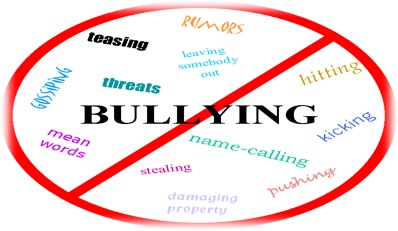Are We Creating Bullies and Wimpy Kids?
Are We Creating Bullies and Wimpy Kids? https://csuiteold.c-suitenetwork.com/advisors/wp-content/themes/csadvisore/images/empty/thumbnail.jpg 150 150 Dana Pope https://secure.gravatar.com/avatar/944f3c0406efefd3afbf1825e33c5962?s=96&d=mm&r=g
A Tennessee middle-schooler, Keaton Jones, was on a video where he lamented about being bullied at school. The video pulled at our hearts as he asked, in a cracked voice, why some kids are bullies. Keaton stated that he was teased because of his looks and for being different.
Keaton is not alone. The U.S. Department of Health and Human Services reports that twenty-eight percent of students in grades 6 – 12 have been bullied at some point. Looking at just cyberbullying, the number of those bullied went from 18% in 2007 to 34% in 2016. The increase in suicides by those tormented has increased so much we added a new word for it: bullicide; a combination of bully and suicide.
A bully is a person who is habitually cruel to smaller or weaker people. There are several actions that a bully uses: name calling, making fun of, pushing, spitting, and stealing, along with excluding them from activities or groups. Kids who are bullied are more likely to experience depression, anxiety, loss of eating and sleeping, a drop in their grades and less interest in activities, to name a few. Being bullied can have a negative effect that will stay with children, even when they become adults.
There are also effects that bullies carry with them as adults. Kids who torment others are more likely to get into fights, vandalize property, drop out of school, abuse drugs and alcohol, have poor relationships and have criminal convictions. Whether a child is the bully or being bullied, there is a lasting negative effect that can be played out when they are adults.
Both sides of bullying need to be addressed and parents are a great influence on their kids. Let’s look at the bully side first. Being a bully is a learned behavior. A York University study found that children who are bullies have little support from their parents, live in homes of high conflict and their parents don’t monitor their children’s activities. Bullying is a learned behavior that a child picks up from people they live with.
Parents of a bully can counteract this behavior by:
Active relationships – spend time with your kids. Set expectations and have some rules.
Physical exercise – take the kids outside to play. Teach them to play fair.
Look at your behavior – what are you modeling for your child in the way you speak to and treat others, in violence, with racism, etc. Demonstrate better behavior with support and unity. Remember, you are their parent, not their best buddy.
Now let’s address the child being bullied. In a perfect world, there would be no bullies. Since there are, we can prepare our children not to be tormented. Teach kids that their differences are what make them who they are. When you encourage and support their uniqueness, they will gain confidence. The most successful people are those who have embraced who they are.
Bullies use the unbalance of power; physical strength, embarrassing information or their popularity as weapons. Kids who are bullied need to take back the power so they can stand up for themselves.
Here are a few things parents can do to teach their children how to avoid being bullied:
Model confidence in the things you do. Be an example to your children.
Encourage them to try new things. Be there with them. Set them up for success.
Let them fail. Failure is learning. Don’t remove obstacles. Praise them for their hard work and their resilience.
Let them weigh out the options. Children with low self-esteem have parents who advise them too much. Children have to learn to make decisions.
A bully needs a victim; teach your child not to be a victim. Coddling your child doesn’t give them the capacity to handle negative situations. Build up their confidence. Teach them to take criticism so they won’t internalize what someone says.
Parents are the first line of defense against raising a bully or raising a victim. Standing back and asking, ‘what are we going to do to protect our children while expecting someone else to step in isn’t a solution. The most effective thing you can do is equip your child with the tools he/she needs to stop being a bully or to overcome bullying.
“No one can make you feel inferior without your consent.” Eleanor Roosevelt

